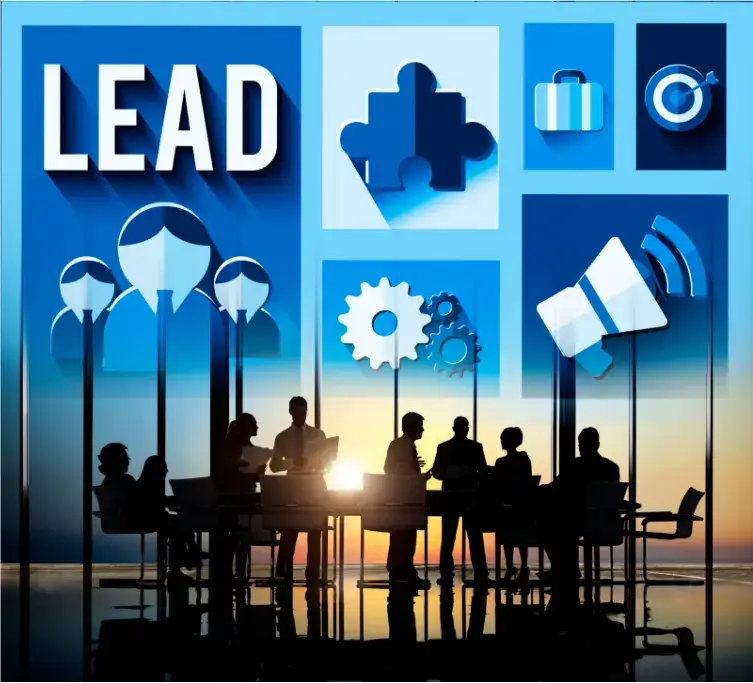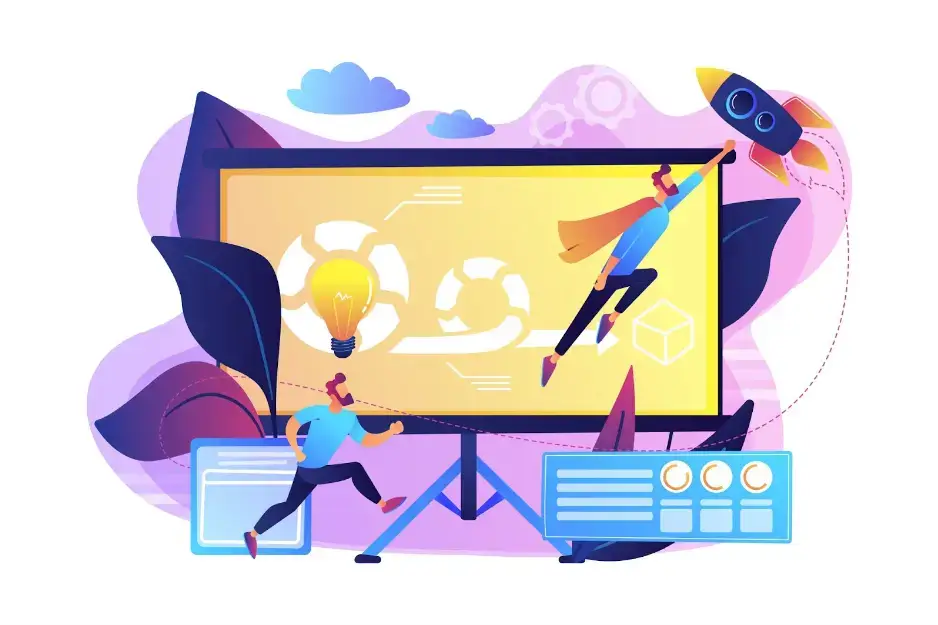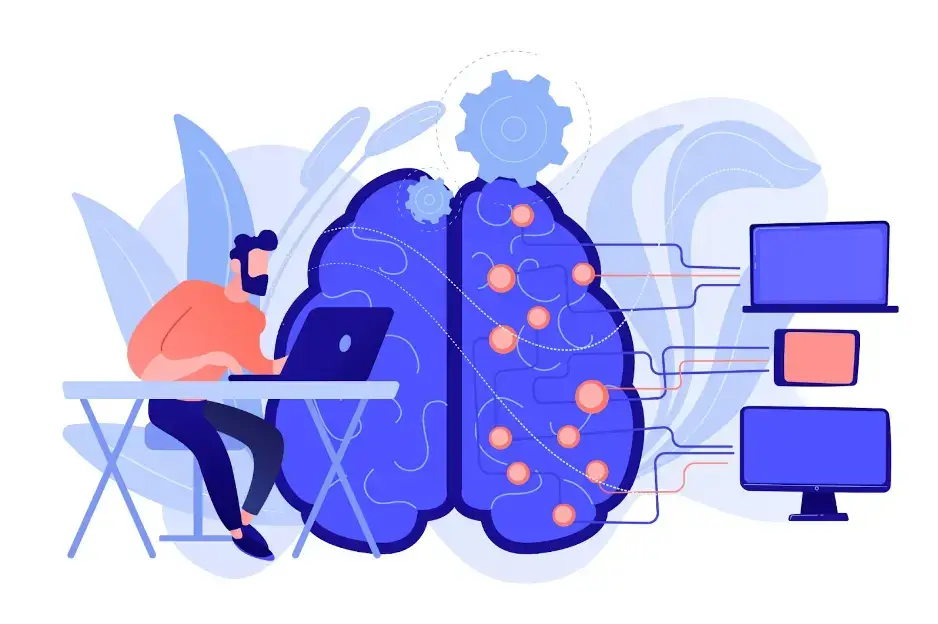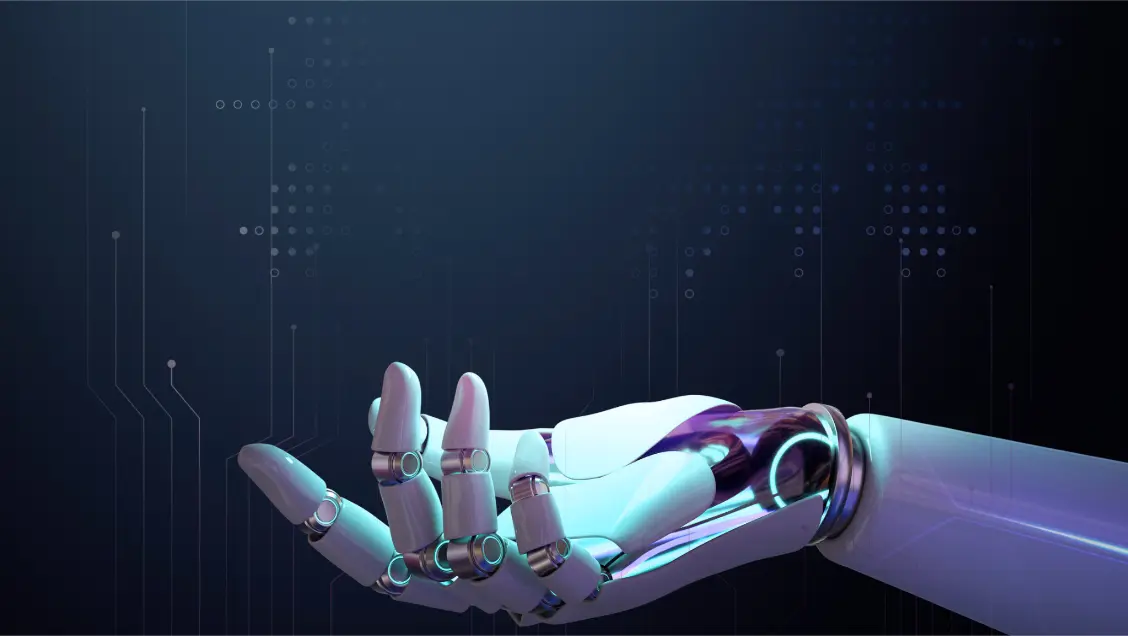Lead generation is at the core of marketing concepts for many modern businesses and is also one of their biggest growth challenges.
According to the Zippia Report 2023, over 50% of businesses prioritize lead generation in their marketing strategies and spend most of their budgets on it.
Meanwhile, over 77% of companies use automation software to convert prospects to clients.
In this article:
- Lead Generation Software Basics
- AI and Machine Learning in Lead Generation
- 6 Key Technologies That Enable AI Integration
- How Smart Tech Enhances Lead Generation
- Advantages of Implementing AI in Lead Generation
- Challenges of AI in Lead Generation

Lead generation software is a vital tool for attracting potential customers and converting them into leads – individuals who have shown interest in products or services.
This specialized software widely relies on advanced tech, including smart algorithms.
Artificial Intelligence (AI) and Machine Learning (ML) are crucial for automating and optimizing processes, enabling businesses to identify and nurture potential customers more efficiently.
Embracing these technologies is a necessity, not a strategic choice, for companies to thrive in the dynamic, competitive landscape of the commercial world.
Lead Generation Software: Basics to Embrace

Lead generation tools date back to the early days of direct marketing and sales efforts. Initially, businesses utilized manual methods such as cold-calling, trade shows, and print advertisements to generate prospects.
In the late 1990s and early 2000s, Customer Relationship Management (CRM) systems brought lead management to the next level.
They allowed businesses to store customer data, track interactions, and manage potential customers more efficiently. However, these early tools lacked intelligence and automation capabilities that AI would later introduce.
Components of lead generation software
Modern lead generation software is a comprehensive system that combines prospect capture, management, and nurturing capabilities.
To understand how this dynamic system works, it’s worth taking a look at its major components:
Lead capture
Specialized forms are strategically placed on websites, landing pages, and social media platforms to collect vital information from potential customers.
Lead management
The lead database management system stores and organizes all collected information.
Understanding how to implement DevOps and tools like Cloud Foundry alternatives can significantly enhance the efficiency of lead generation software development and deployment processes.
Lead tracking
Lead tracking enables businesses to monitor activities such as website visits, email opens, and content downloads.
Lead scoring
Lead scoring evaluates prospective clients based on potential interest. It identifies hot leads more likely to convert, helping sales teams prioritize efforts and focus on the most promising opportunities.
Lead nurturing
Lead nurturing engages prospects through targeted and personalized communication, such as email marketing.
Lead analytics and reporting
Analytics provide insights into visitor traffic, bounce rates, content performance, and conversion rates.
AI and Machine Learning in Lead Generation

The advent of smart tech marked a transformative shift in lead generation software.
AI helps businesses process large amounts of data to identify promising prospects.
Integrating tools like ChatGPT (e.g., ChatGPT in Google Sheets) streamlines workflows and allows automated data analysis.
AI-enabled software uses models to analyze data, identify patterns, and make predictions. ML algorithms learn from historical data and continuously improve performance, making tools more intelligent in scoring, personalization, and segmentation.
6 Key Technologies That Enable AI Integration
Six technological advancements paved the way for seamless AI integration into lead generation software:
1. Big data and cloud computing
Cloud-based platforms allow businesses to analyze data in real time, enabling faster decision-making. Leveraging cloud computing enhances scalability.
2. Natural Language Processing (NLP)
NLP helps software understand text from emails, social media posts, and customer feedback, enabling sentiment scoring and deeper insight.
3. Predictive analytics
Predictive models forecast customer behavior, helping businesses identify promising prospects and allocate resources effectively.
4. Advanced algorithms
Neural networks and decision trees allow more nuanced prospect scoring by considering multiple data points and historical patterns.
5. Personalization engines
Personalization engines enhance customer engagement and conversion rates.
6. Automated workflows and chatbots
Chatbots provide instant engagement, while automated workflows optimize follow-up and communication strategies.
How Smart Tech Enhances Lead Generation Software

AI and ML development services are now foundational for modern lead generation tools.
Automated data collection and analysis
AI-driven prospect scoring considers multiple data points, behavior, and interaction history.
By automating this process, businesses can identify high-quality leads more accurately and allocate resources wisely.
Personalization and customer segmentation
Personalization drives customer engagement. AI tools can segment prospects based on data and behavior, enabling targeted content and messaging that strengthen relationships and build long-lasting customer relationships.
Predictive analytics and lead nurturing
Smart tech predicts lead behavior and automates personalized, timely follow-ups. Automated workflows (example) ensure leads receive relevant responses instantly.
Advantages of Implementing AI in Lead Generation Software

Integrating smart tech into presale software provides numerous benefits that drive business growth.
Increased efficiency
AI-supported tools help identify potential leads faster and automate repetitive tasks like data cleansing using data cleansing tools.
Time and cost savings
Businesses can streamline lead generation, increase efficiency, and reduce costs through automation.
Enhanced decision-making
AI provides insights that help businesses refine messaging and optimize lead-generation tactics.
Reduced human errors
Automation reduces mistakes in data entry and analysis, improving accuracy and outcomes.
Continuous improvement
As the software interacts with prospects and gathers more data, it becomes increasingly refined in identifying ideal leads and optimizing generation strategies.
Challenges of Lead Generation Software

Privacy and security concerns
Ensuring data privacy and security becomes critical, especially with the growing use of big data in healthcare. Tools such as rotating proxies help safeguard sensitive data.
Dependence on quality data and algorithms
The effectiveness of AI in lead generation relies heavily on data quality and model optimization.
Human-AI collaboration and skill gaps
AI boosts productivity, but human oversight remains necessary. Teams must develop skills to integrate and manage smart tech effectively, which requires proper training and upskilling initiatives.
Summing Up
Integrating AI and ML has profoundly transformed lead generation software, revolutionizing how marketers attract, nurture, and convert potential customers.


